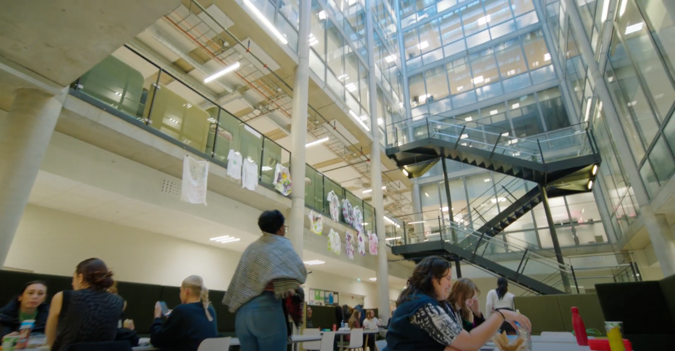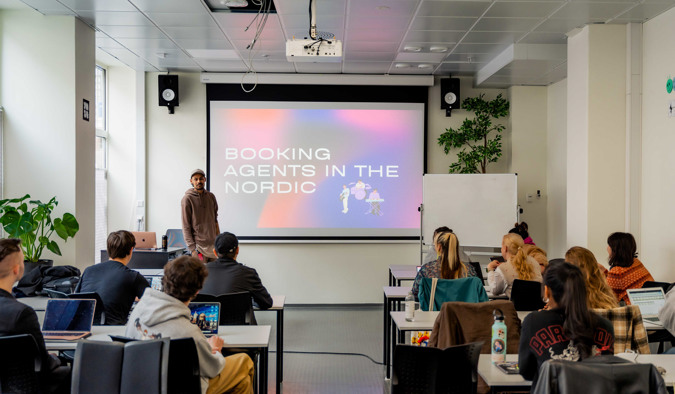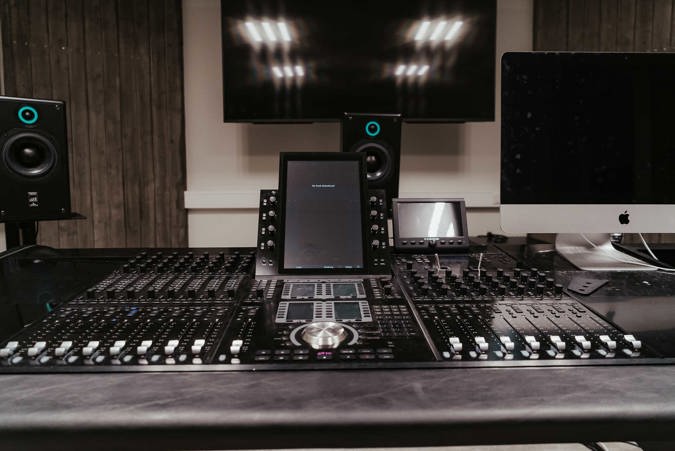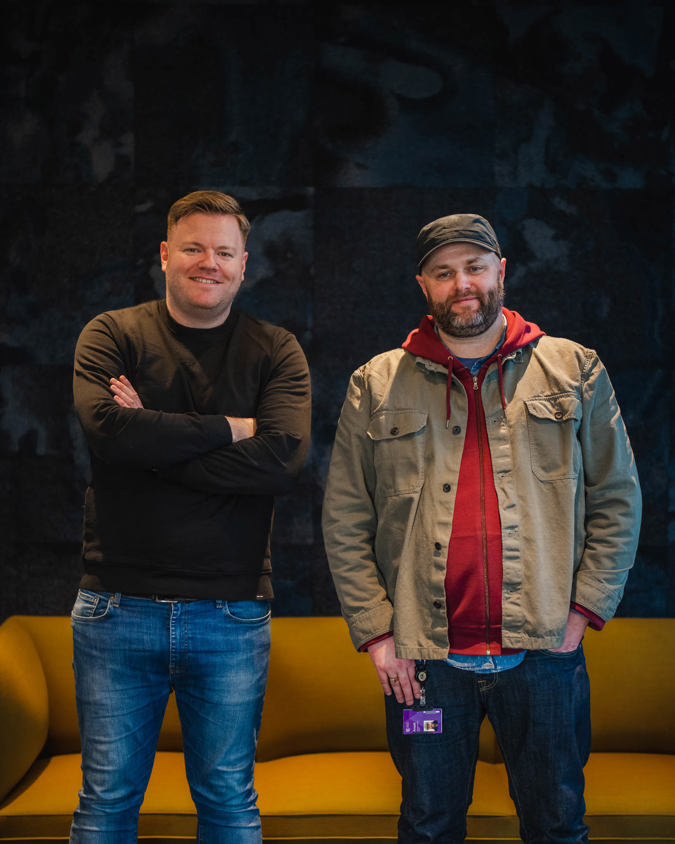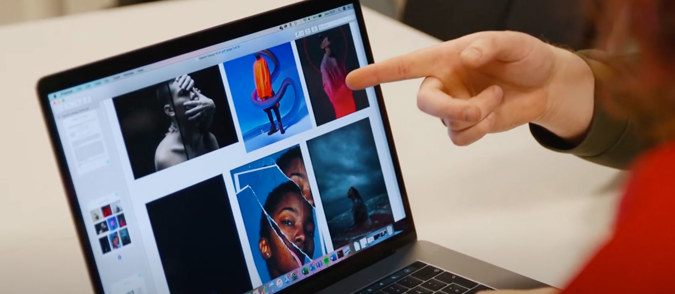
Music Business Management
Are you dreaming of working with music? At Music Business Management, you can specialize in an area of the music industry that interests you and gain the competence to work with music both in the Nordic region and internationally.
Key information
Run a real record company
Together with fellow students in the class, you get to run the school’s professional record company “16 Roses Recordings”Specialization
In the second year, you can choose from the following specializations: record labels, management, marketing/PR, or live/events.Mentorship program
Experienced professionals from the music industry act as mentors and guide you in their respective fields of expertise.Responsible academic environment
Admission requirements
Higher Education Entrance Qualification or the equivalent.Tuition fees
58 600 kr per semester*. Additional information about prices can be found here.
- Professional College
- Fall 2025
- Full-time
- 120 Points
- Oslo
- 2 years
- English
What do you learn?
In the first year, you will be introduced to everything from record companies, music publishers, and management to marketing, PR, and content production. You will also learn about legal contracts and agreements, as well as touring and event planning. This gives you the opportunity to test different parts of the music industry. In the second year, you will choose a professional function to specialize in.
You can choose between the following specializations:
- Record companies
- Management
- Marketing, PR, and content production
- Live and events
Study model
- FBM2100Music Business Management: Entrepreneurship for the Music Business
This part of the course consists of three key subjects with an overarching modular theme. Entrepreneurial and Professional Development is a key indicator and area that requires consistent and ongoing maintenance. This subject is primarily concerned with infrastructure building of the ‘company’ alongside the medium to longer-term planning of future activities in the music industry marketplace. Students will be introduced to professional tools, which they will then be expected to use for the duration of the project at hand. Students will continue to work with release schedules, within which live music activities will be included alongside assessments of which territories to focus on, domestically or internationally. Economics, as it relates to the flow of money in the music industry, will be studied. Students will undertake a formative assignment as it relates to that area of specificity for the duration of the course.
The three key subjects are:
A&R, Planning & Collaborative Entrepreneurship
This module gives the cohort time and space in which they can set up their respective companies/departments within the existing structure. The primary emphasis during this module is the importance of workflow and communication between departments/project stakeholders. During this module, students will be expected to define their corporate identities - both internally and externally / public-facing - that is to say the creation of the following which include but are not limited to: aesthetics, online presence as well as style guides, company policies and focus areas within the sector. Business plans will be created as part of this module.
Building, Identifying & Developing Creative Demographics
This module is focused upon the premise that the traditional routes to market and points of sale have fundamentally changed in the past 20-years, presenting unique and rapidly changing commercial ecosystems for the consumer. Consumer and audience trends with respect to how companies and artists attain a level of ‘repeat-business’ maintaining sustainable income will be studied and debated. This will inform the conversation and understanding of why and how the industry has developed and continues to develop. Tools and mechanisms will be discussed and incorporated in each specialisms’ activity throughout the course. Deep-diving industry-specific analytical tools such as Chartmetric will be revisited throughout, in order to properly understand the legacy of past releases and how they inform future activity and potential success in the marketplace.
Applied Campaign Planning & Economics For The Music Industry
This module will practically draw from and build upon the experience the students gained in the first year with respect to the need for and importance of short and long-term planning when operating within the music industry. Each department must work in conjunction and in unison ensuring that release schedules and associated activities align in a de facto ‘fit-for-purpose’ way, reflecting best-practices within the music industry.
- FBM2200Music Business Management: Campaign Deployment
This course consists of three key subjects. The second semester of the second year of study is concerned with the preparation, delivery, and release of market-ready products and their subsequent presence in the marketplace, as well as different spheres of influence within the international music industry. Releasing records, supported by carefully designed marketing and live strategies represents the overarching and abiding focus of this semester.
Students will use this semester to prepare and deliver their summative final project.
The three key subjects are...
Digital Marketing & Social Media Strategy
This module recaps and builds upon this area of expertise from the first year, both from an academic and practical perspective. The opportunity for practical repetition with tools such as proficiency with Google Ads is critical to maintain operational readiness and professional currency, therefore students will deploy such tools within their respective release campaigns and overall projects’ TikTok’ strategy and it’s fast-emerging importance in today’s marketplace is a key area of focus during this module, drawing on current major and independent label experience. Digital health checks and the importance of regularity in order to ensure an upward track, on a timeline, project-to-project. Analysis of relevant data using ChartMetric will be fully realised and deployed during the campaigns. Traditional social media platforms as well as more industry-specific tools such asSpotify For Artists will be incorporated as will the importance of lead-time deployment of these elements and overall thematic content per release campaign.
Applied Event Planning For The Creative Industries
This module focuses not only on the specific machinations and operational indicators needed to arrange and realise the live show aspect of the music industry, but also how to understand and respond to the need for events with respect to ‘cross-arts’ activities, in different sectors, comprising different stakeholders. Governance and legislation, per project and event, will form part of this module as will the development of a professional lexicon and especially how lexicographical differences and the understanding of them is critical when dealing with multiple, multi-faceted events.
Examples of events may include but are not limited to:
- corporate events
- brownfield festivals (major music festivals)
- city-based festivals and conferences
- pop-up/guerilla gigs
- ‘all-age’ shows and events
Final Project Completion
The final module allows the student and their respective groups to adequately reflect upon their collective and individual contributions throughout their time studying Music Business. In a Situated Learning model such as Music Business, allowing time for cognitive distance is a key indicator on how successfully the student moves through the complexities inherent on this course. Comprehensively mapping their respective final projects and subsequent deliveries will be undertaken here. The final projects construction will take place from January to June, when students graduate.
Career opportunities
You can work with:
- Record labels
- Music publishers
- Management
- Talent scouting
- Marketing and PR
- Live music and touring
- Booking and event companies
Meet the faculty

Our faculty
The faculty at Music Business Management has a combined experience of over 30 years in various roles in the Norwegian and international music industry. They have worked, and continue to work, with major record labels, music publishers, and artists. They bring this extensive experience into their teaching and share it with you through lectures, workshops, and guidance. You will also have the unique opportunity to work with Virgin Music, which distributes some of the world’s largest record labels and artists. Throughout your studies, you will have many opportunities to expand your network. We regularly host guest lecturers and mentors from the industry. If you dream of working in the music industry, then this is the program for you!
Facilities
The application process
Important deadlines
The application deadline is April 15, 2024. The deadline for submitting transcripts and certificates is July 1, 2024.Important deadlinesHow to apply
Min Side for søkere is where you accept the offer and upload necessary documentation for your qualifications.How to applyProcessing time
For study programs with rolling admissions, you will receive a conditional offer within 1–3 days of submitting the application, if there are available slots for the study program you applied for.Processing time
Semester registration
You must register and confirm your individual education plan before you are reported as an active student to the Norwegian State Educational Loan Fund, and to gain access to your subjects in Canvas, the learning platform.Semester registrationSiO (Oslo) and Sammen (Bergen)
SiO and Sammen offers housing, health services, kindergardens, fitness centers and much more to its members.SiO (Oslo) and Sammen (Bergen)Loans and grants
All our study programs are publicly approved and give the right to apply for loans and grants from the Norwegian State Educational Loan Fund (Lånekassen).Loans and grants
Services and adaptations
As a student, you can get guidance, adaptation and follow-up on study-related questions and challenges. We have a duty of confidentiality.Services and adaptationsMitt Kristiania
This is where you get an overview of your schedule, syllabus, services and other tools you need as a student.Mitt KristianiaStudent ID card
As a new student, you can have a student card made on all our campuses. Your student card serves as an access card at the college’s campuses, ID for exams, payment card for printers and library card.Student ID card
Any questions?


